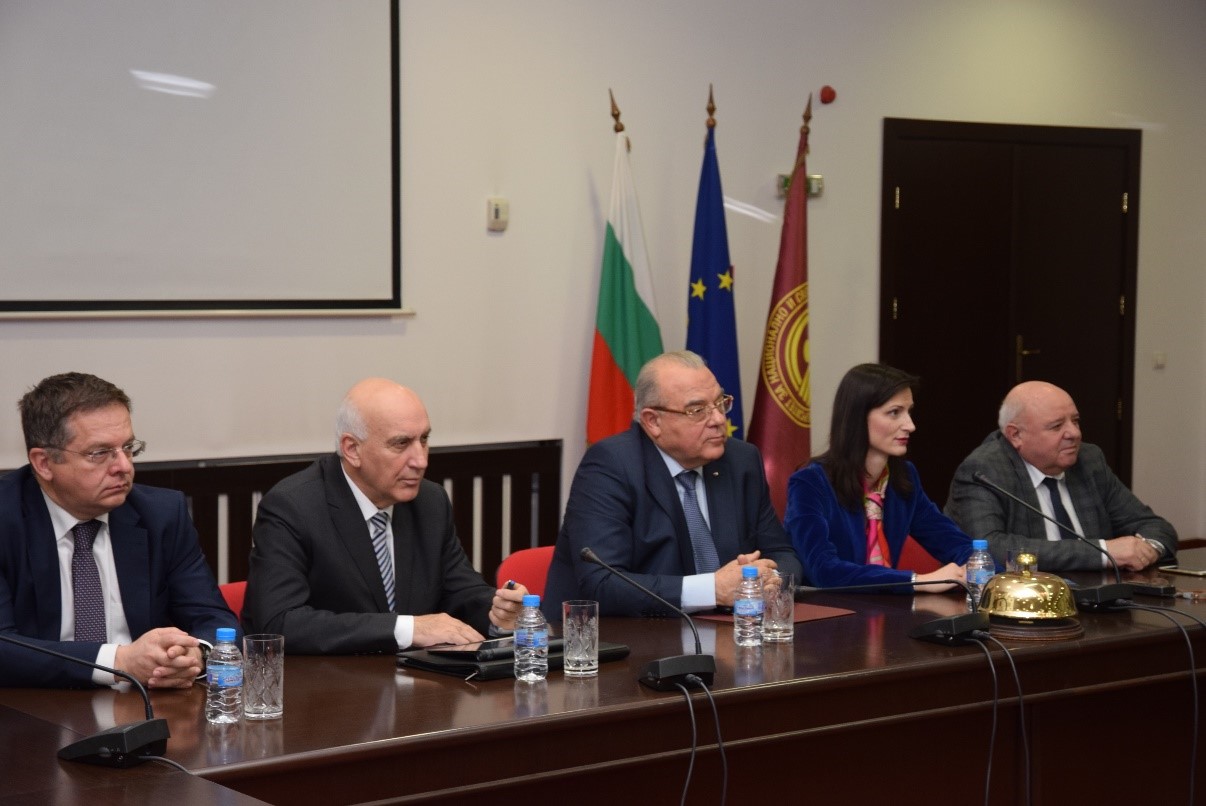Public Lecture by the European Commissioner Mariya Gabriel: How to Read on the Internet?
How to Read on the Internet? – it was the title of the public lecture delivered by Mariya Gabriel, European Commissioner for Digital Economy and Society. The event gathered together Rectors, lecturers, students, representatives of central and local authorities in the Large Conference Hall.
Prof. Statty Stattev defined the lecture as extremely important in the modern conditions of intensive use of Internet. How to read on the Internet, do we think what should be accepted as an authoritative information, do we discern the fake news, do we allow to remain misinformed – these are issues of special importance for our future personal and professional development, said the Rector (in the picture below).
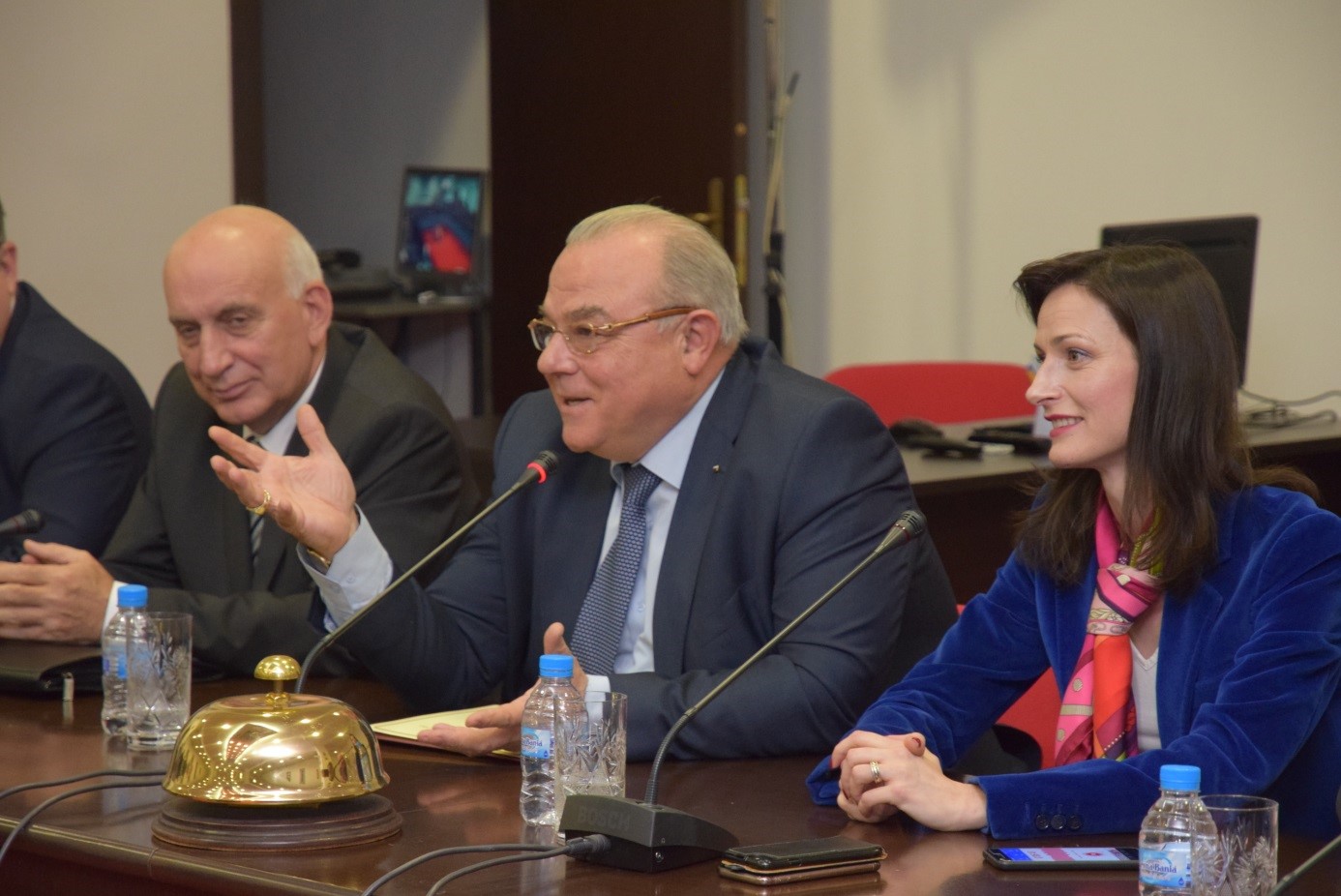 |
If we don`t invest in digitals skills of people we could never achieve the expected results of digital transformation. Over the last four years one of the priorities of the European Commission is to build up a digital single market which requires the preparation of highly qualified professionals having digital skills as well as mass digital literacy. Today only 44% of the European citizens have basic digital skills and after 2020 90% of jobs will require basic digital skills, outlined the European Commissioner. She reminded that in June 2018 a pilot project entitled Digital Opportunity had been started and till the end of 2020 it had provided internships paid by the EC for 6 000 students. The objective is to attract not only IT specialists but we also want students of various specialities to have additional opportunity for professional realization. More than 1800 internships have been negotiated so far. The European Commission relies on universities because they could contribute to form skills and habits for reducing any kind of risks on the Internet, declared Gabriel.
In response whether the modern communication infrastructure is an instrument for information or misinformation the European Commissioner pointed out that according the last EU data 75% of 15-24 aged young people had confessed that they couldn`t discern the fake and true news so she emphasized on the necessity to provide media literacy which could help young people to make their informed choice.
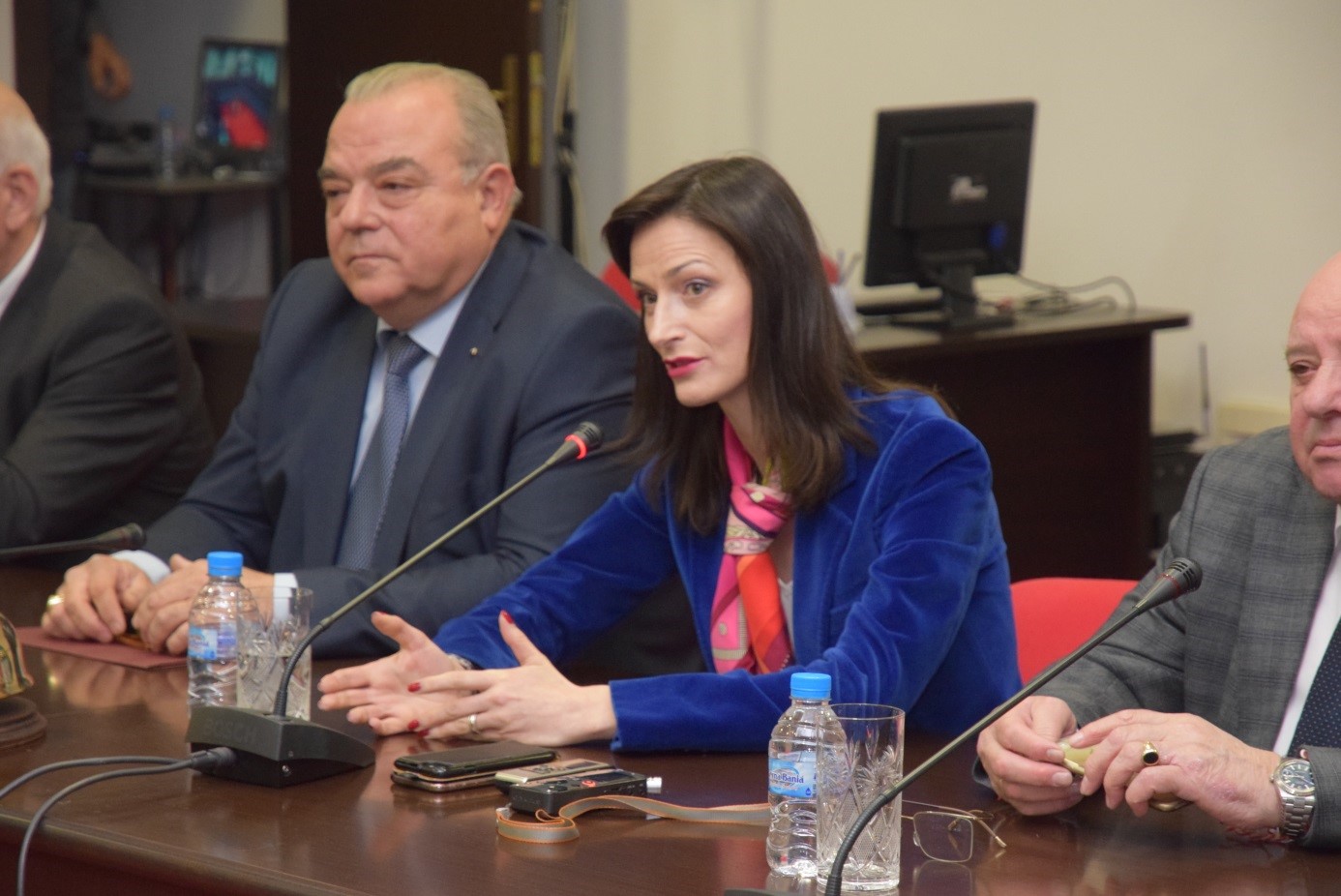 |
Today in Europe there`s a lack of 350 thousand IT specialist and in 2020 the lack will be 500 thousand ones. So Gabriel has suggested a new programme in the frameworks of the EU budget for the next programme period. It is entitled Digital Europe and its budget is 9 billion Euros for five fields - artificial intelligence, cybersecurity, super computers, digital skills, digital innovative hubs.
The European Commissioner paid attention to the cybersecurity and emphasized on the importance to have cyber hygiene. The cybersecurity is a priority of EC and for one year we have achieved serious success in the field, outlined Gabriel and reminded that in September 2018 she and her team had made the first legislative suggestion in the field of cybersecurity which would come into force since May 2019. It provisions the establishment of cyber agency having permanent mandate and over 50% increase of the budget and human resource as well as operative tasks, possibility for the member states to request the identification of vulnerabilities and support to manage with them. For the first time there is a European framework for certification of products and services.
On behalf of the student community Angel Stoykov (in the picture below) expressed thankfulness to the European Commissioner for the useful information pointing out that the fake news and misinformation should be the leading topics in the modern conditions for not being turned in an instrument of manipulation in the Internet area.
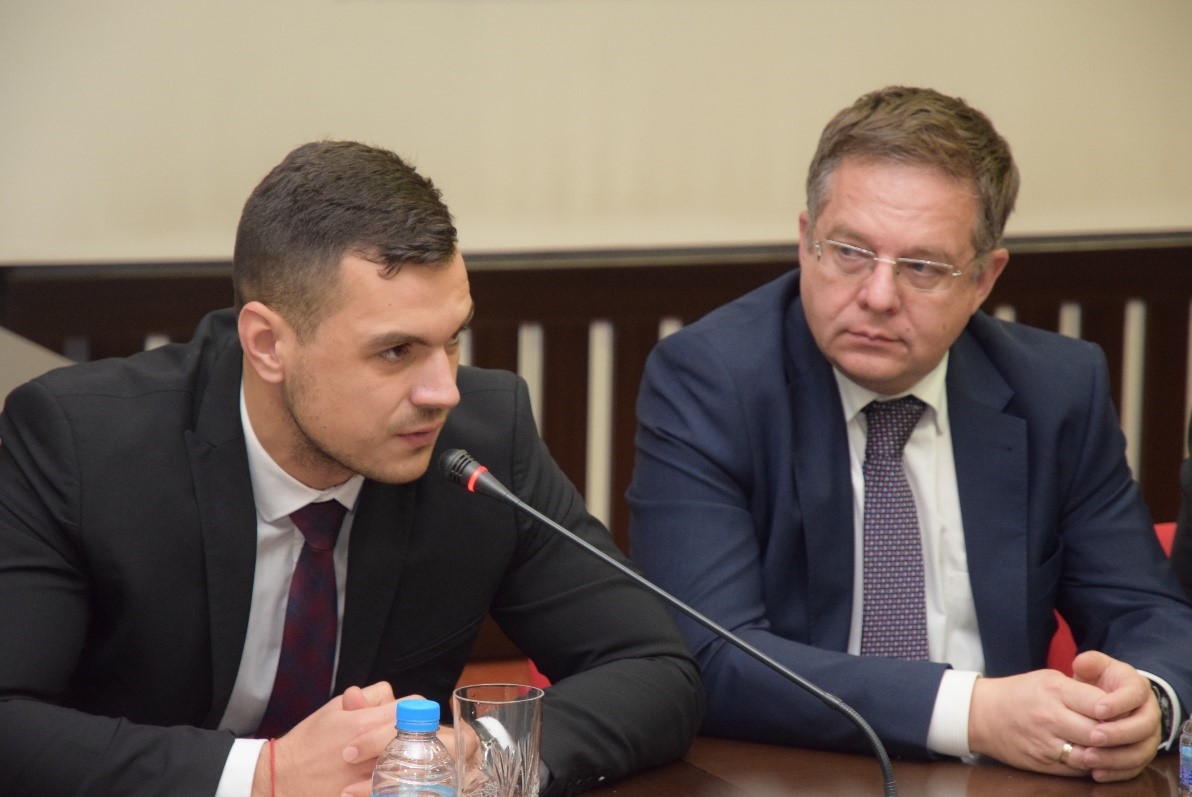 |
The students took part in the discussion and asked lots of question related to the cybersecurity, freedom of speech, digitization and media literacy in the smaller towns and villages, etc. (in the pictures below)
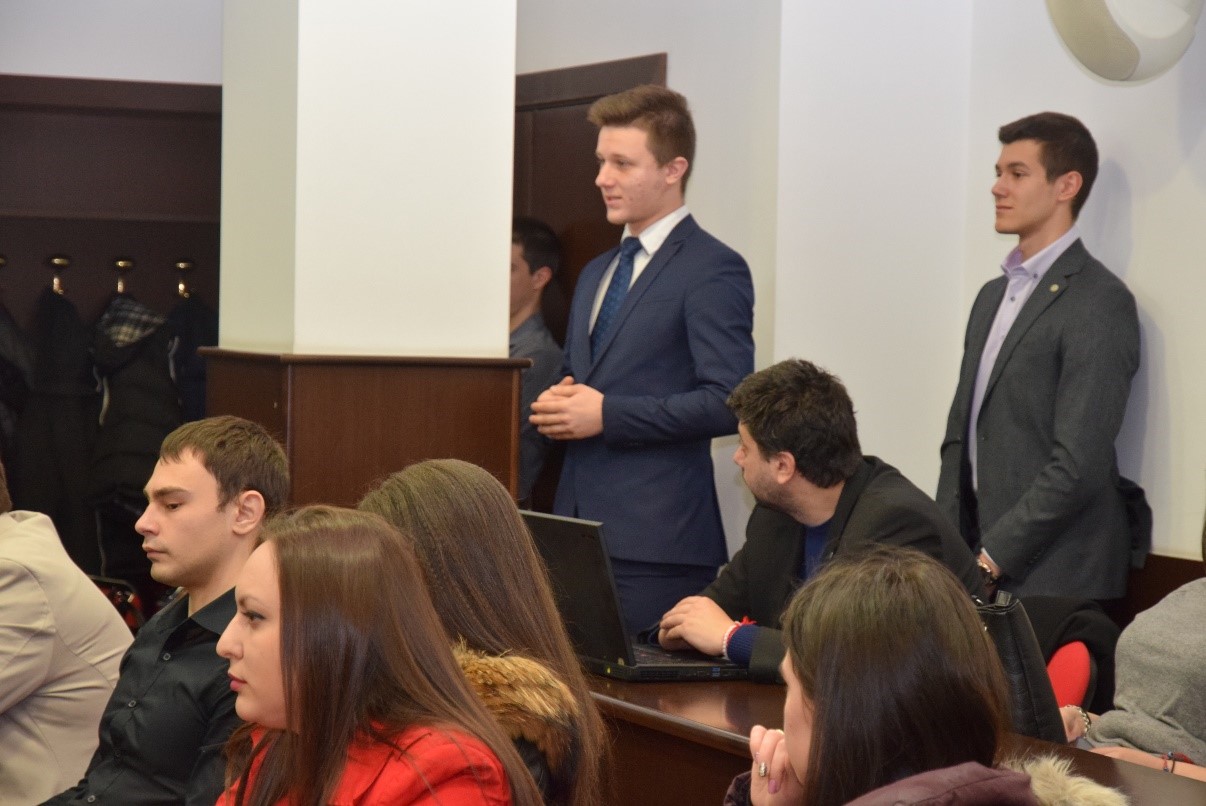 |
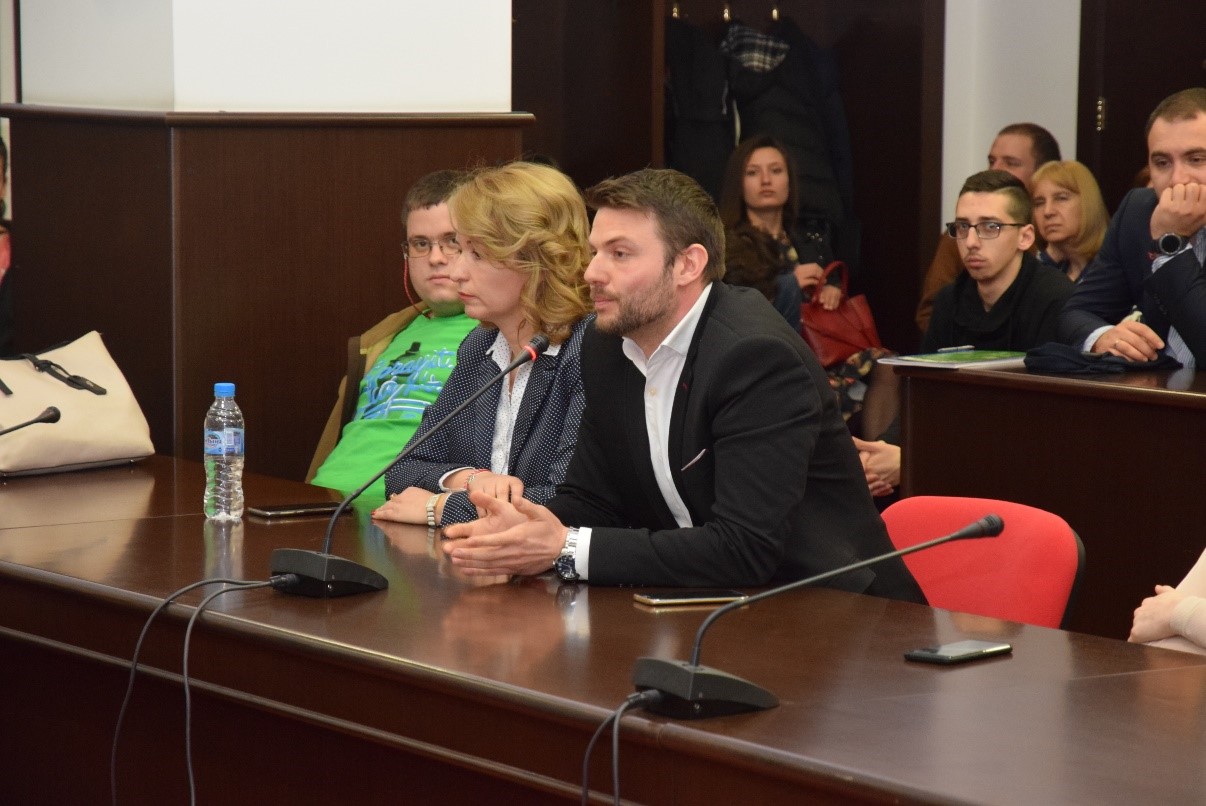 |
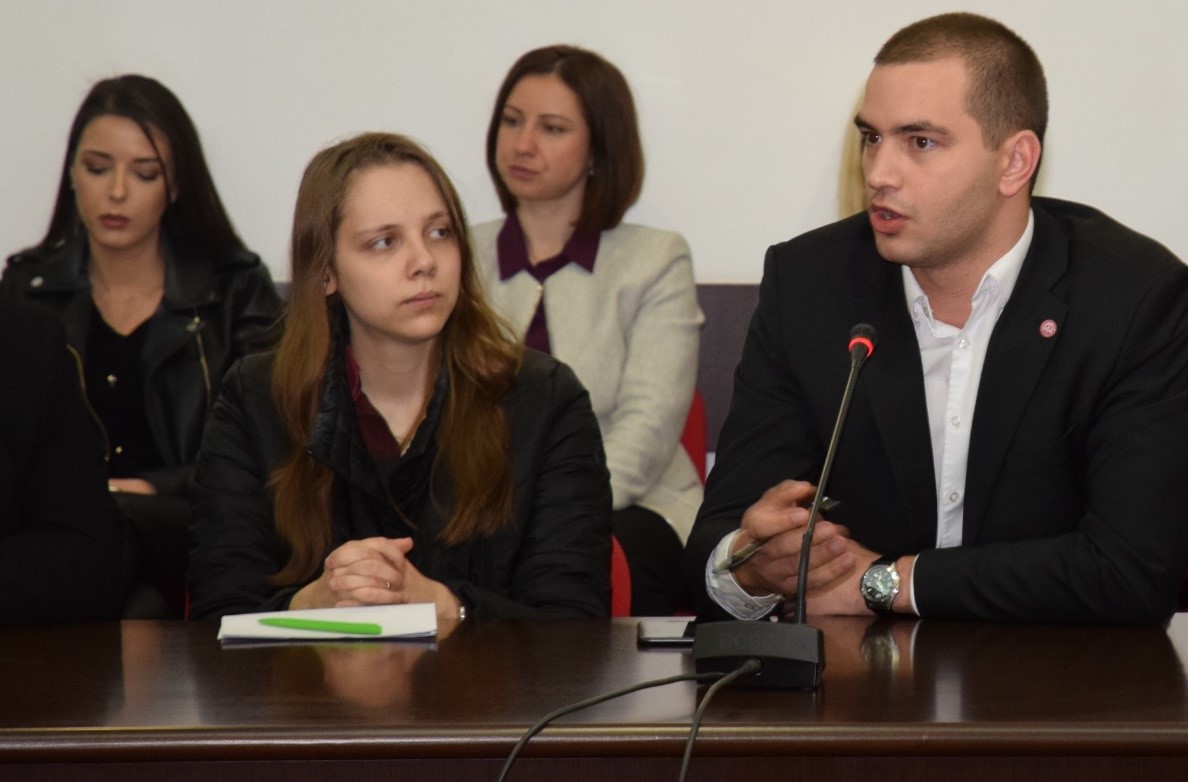 |
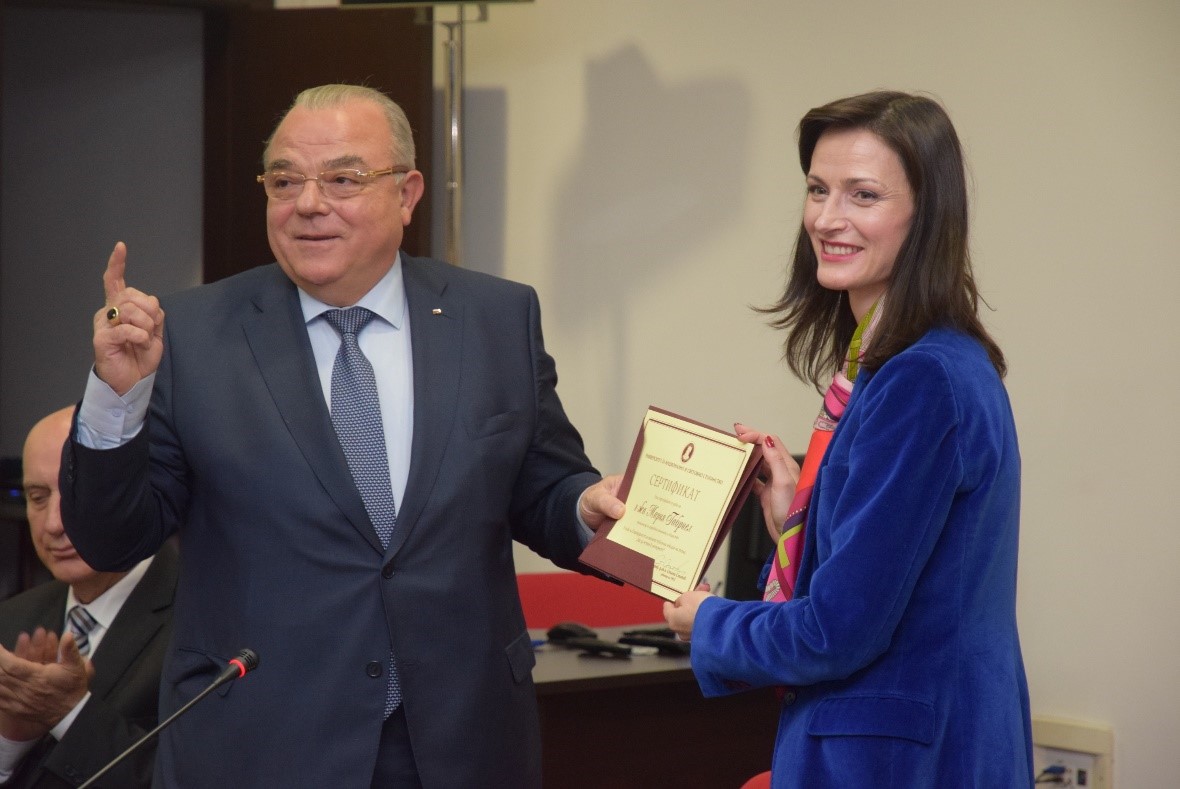 |
|
The Rector awarded to Maria Gabriel Certificate of Appreciation in recognition of her lecture |
